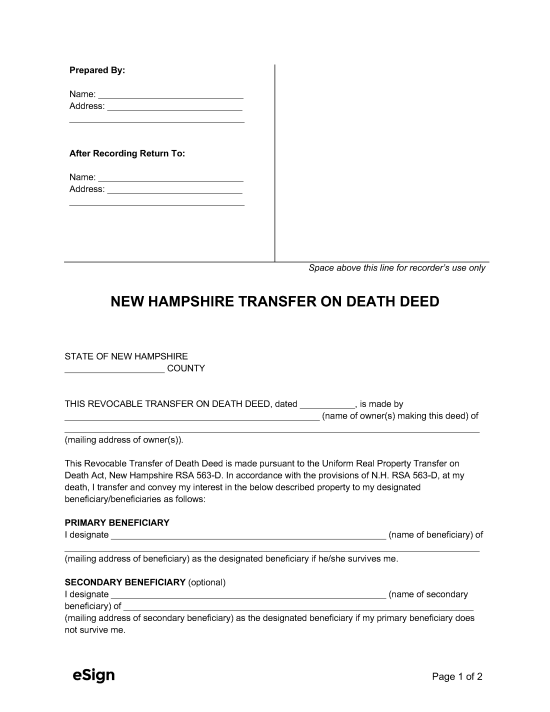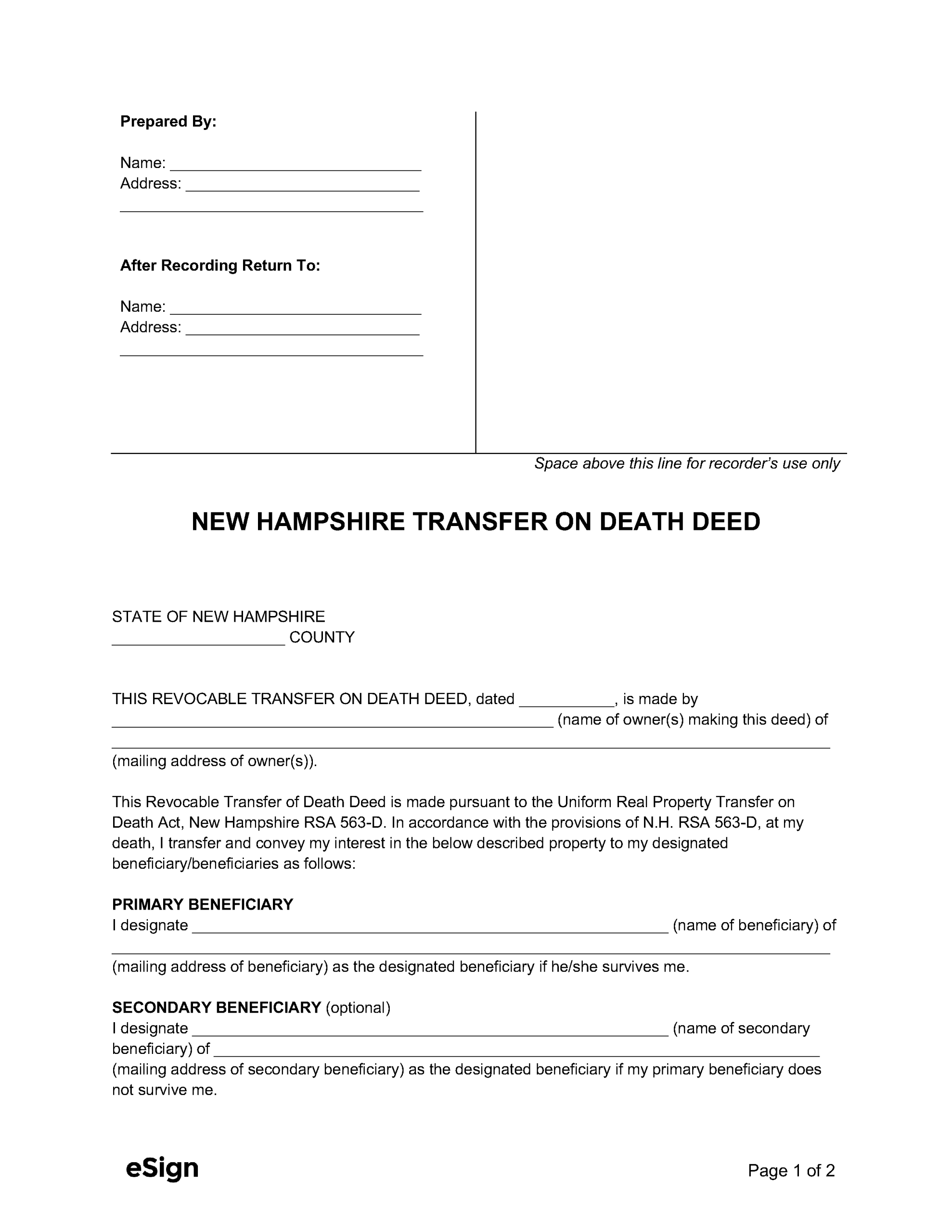AKA
- Beneficiary Deed
- TOD Deed
- TODD
Recording and Resources
For county-specific formatting requirements, see the NH Deeds website.
Formatting
- Paper: White, 8.5”x11” – 8.5”x14”
- Margins: 3” top right of first page, 1” everywhere else.
- Font: 10-point.
- Ink: Black or blue ink.[1]
Signing and Recording
- Signing Requirements: Signed by the grantor and a notary public, justice, or commissioner.[2]
- Where to Record: Register of Deeds[3]
- Recording fees (as of this writing)[4]:
- $10 for the first page
- $4 for every additional page
- $25 state LCHIP surcharge
Resources

